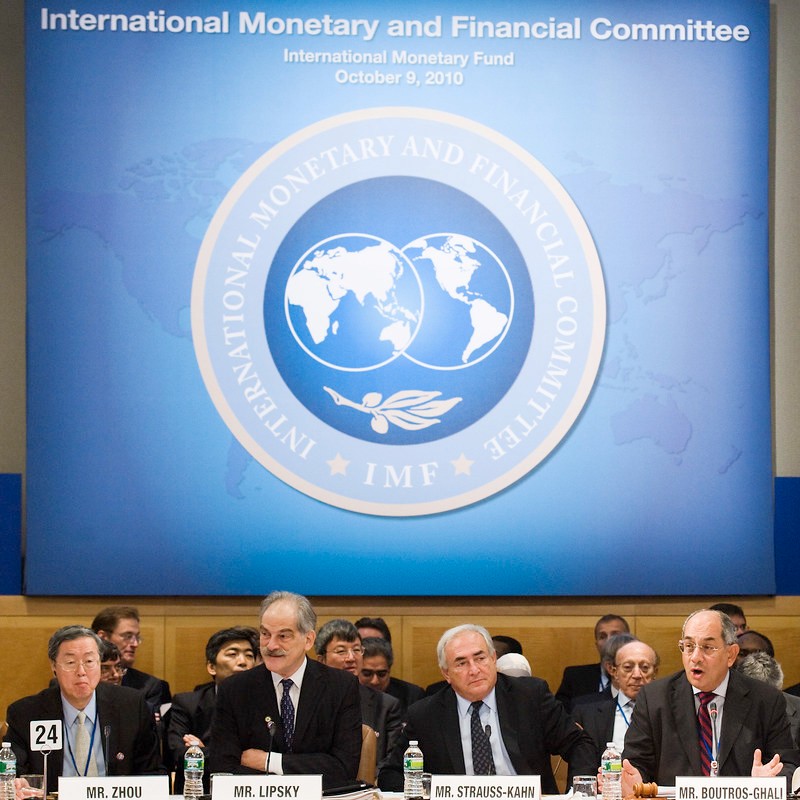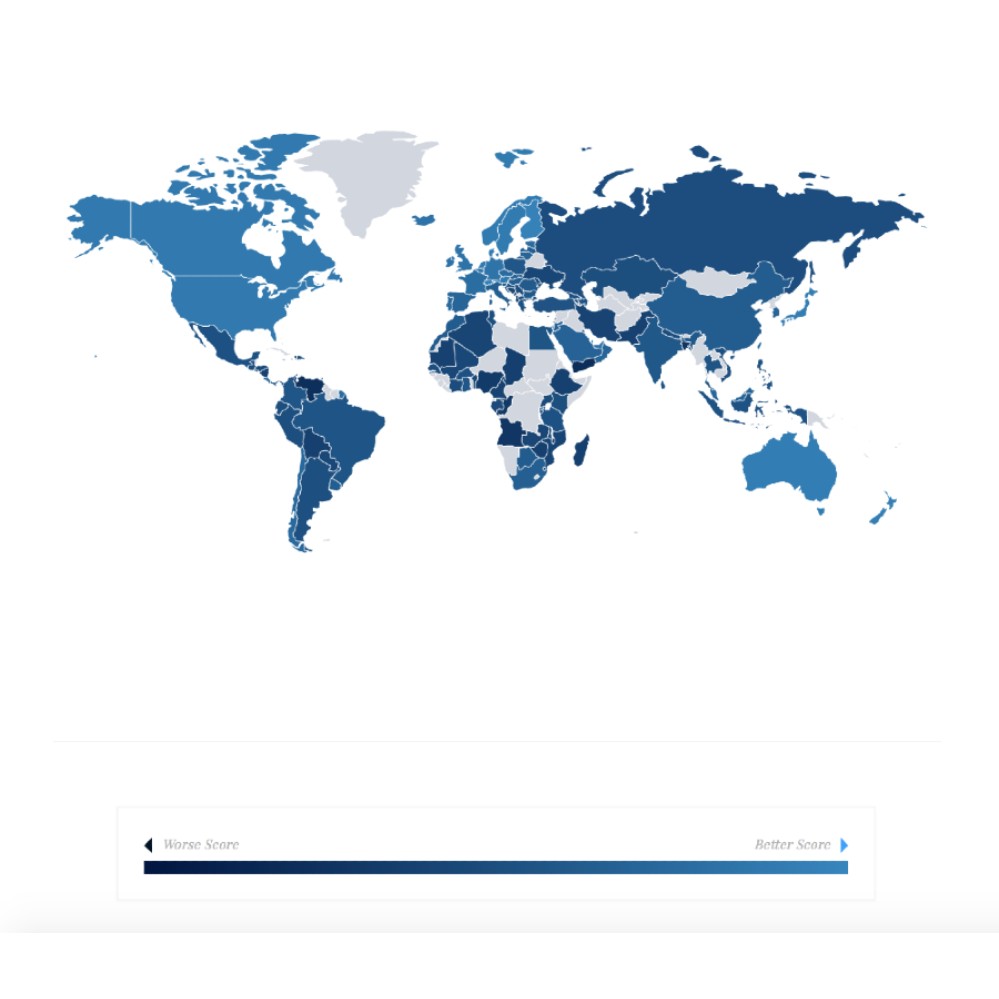The International Monetary Fund (IMF) has had an extremely busy year, thanks to the COVID-19 pandemic. The COVID-19 pandemic has caused the IMF to respond to situations faster than ever before, and with new and innovative responses. The IMF is made up of 190 countries, including the United States, China, and the U.K., which are all original members. In the early weeks of the pandemic, the IMF saw more than 100 countries request their financial assistance, which led to the approval of $8.7 billion in emergency financing.
globalEDGE Blog Archive March 2021
Publish Date:
The Suez Canal is an artificial sea-level waterway that connects the Mediterranean Sea to the Red Sea. Built in Egypt between 1865 and 1869, it serves as a way of expediting transportation between the Atlantic Ocean and the Indian and Western Pacific Oceans. The closest alternative would be to travel around the Cape of Good Hope in South Africa, which would require an additional 7,000 km, which estimates out to about 8-10 additional travel days. The Suez Canal is responsible for 13% of the world’s maritime trade, with an emphasis on the transportation of oil and natural gas. It is reported that around one million barrels are transported through the canal daily.
Publish Date:
On March 27, 2021, foreign ministers from China and Iran signed a cooperation agreement that is expected to massively stimulate Iran’s economy, as well as deepen China’s presence in the middle east in general. The agreement promises around $400 billion of Chinese investments to be made in multiple Iranian economic sectors like banking, telecommunications, ports, railways, and health care and information technology. In exchange, China will receive a heavily discounted supply of Iranian oil for the next 25 years. Iran’s main contributors to these oil exports will likely be the government-owned National Petrochemical Company and National Iranian Oil Company.
Publish Date:
The issue of data collection is once again being posed, however this time it involves a very well-known gambling app company in Britain, Sky Bet. After fighting his gambling addiction, a man in Britain decided to pull a request for the private data that Sky Bet collected about him, revealing multiple personal information files including his banking records, mortgage details, location coordinates, and a full portrait of his different gambling habits. After he quit gambling, Sky Bet used the personal data they had of him to label him as a “win back” customer, creating targeted ads that have led to yet another controversy surrounding data collection and usage.
Publish Date:
Having survived the COVID-19 pandemic, many countries are looking to strengthen their security measures by controlling private information, namely the Chinese and American governments. Throughout 2020, the United States government attempted to ban the controversial app “Tik Tok” from platforms like the App Store on Apple devices because of its former ties to China. Similarly, the Chinese government is now restricting the use of Tesla’s vehicles by military and state employees as a result of privacy concerns of their own. With back and forth blows struck between the two countries, an international privacy war could be looming on the horizon.
Publish Date:
The ads a consumer sees from day to day have changed drastically in the platform they are presented on. While television ads and billboards were once on the cutting edge of advertising, digital ads have taken over the majority of ad spending in the United States and around the world. Digital advertising is estimated to account for fifty-four percent of total ad spends in the United States in 2021 and is forecasted at just over fifty percent of total ad spending globally. In addition, digital advertising spending hit three hundred fifty-six billion USD in the United States in 2020. Clearly, companies are willing to spend to have access to digital advertising. Let’s take a look at some of the methods they use to access consumers on the internet.
Publish Date:
What Are Intellectual Property Rights
Intellectual property rights (IP) are legal rights that protect creators’ inventions, creations, developments, etc. There are four types different types of IP: patents, trademarks, copyrights, and trade secrets. IP can differ from country to country, so it is important to be aware of local IP laws and enforcement.
Publish Date:
The Coronavirus pandemic has greatly modified every aspect of modern life for over a year now. The entertainment industry has had to change in many ways to adapt to the inability to perform in-person. A previous globalEDGE blog covered how the music industry has seen a massive drop in revenue, especially since up to 80% of a musician's revenue is gained during live concerts. How have other versions of live entertainment held up during the last year, and what are they planning on doing going forward?
Publish Date:
The exploding cannabis industry has seen the most growth in the last year as ever before and is looking for an even better 2021 with Mexico set to legalize sometime in the coming months. Assuming this does happen and Mexico follows the lead of some U.S. states, Canada, and Uruguay, they will then become the world’s largest country to legalize Cannabis with a population of 121 million. This large input of new customers will need suppliers meaning that many Cannabis companies across the U.S. and Latin America are looking to seek substantial growth when the bill officially passes.
Publish Date:
One of the most common ways a private company can generate capital for its business is through issuing equity (i.e. going public). This is typically performed through an initial public offering (IPO). An IPO is a two-step process, where a company issues stock in the primary market to institutional investors, after which shares are traded on the secondary market to retail investors.
Publish Date:
The pandemic has led to millions of people relying on technology more than ever. From phones to laptops to televisions and much more, technology has become the center of our lives over the last year. One thing that all modern technology has in common is the use of microchips. Microchips help with memory, logic, and functionality in electronic devices. The increase in demand for different forms of technology has finally caught up to microchip suppliers, and now multiple industries are facing shortages and shutdowns.
Publish Date:
As technology advances, scientists and environmentalists are testing new ways to further the recycling efforts for our planet. Plastics are a long-debated problem that often ends up in landfills where it will never decompose, so what if we could find a way to take that durability and use it to our advantage?
Publish Date:
In late January, a popular Reddit chat named “WallStreetBets” successfully inflated the stock price of many publicly traded companies. The group of bullish traders had been focused on buying stock and placing options on particular companies that hedge funds had been shorting in order to force them into a “short squeeze.” As a result of such an extensive army of traders all buying into these companies within a similar time frame, the WallStreetBets group was able to pump stock prices of companies like Gamestop (GME) from $20 a share to $483 in only two weeks. Now, hedge fund managers are flustered, brokerage dealers such as Robinhood are facing lawsuits, and federal prosecutors are investigating as to whether or not market manipulation or other criminal actions took place.
Publish Date:
The Cloud is a computer service that has the ability to deliver a wide range of resources over the internet for business and personal use. The Cloud brings innovation and speed to computing services, as there is no software to download to a device and a lessened need to save copies of documents to a computer. Let’s take a look at the future of the Cloud and how it can be used to ease the technology side of doing business.
Publish Date:
The shift to green technology has been highly covered throughout media and it is agreed on by many exports that improving society’s sustainability will be key in our future economic, technological, and health advancement. Recently, the United States’ Exxon Mobil declared its new plan to increase investment in an emerging area of carbon reduction: carbon capture technology. Although this move may appear to be simply another example of a company moving toward sustainability, there is a much bigger implication at hand.
Publish Date:
The media industry has changed drastically with the development of the internet. While television and print are still used, an ever-growing amount of people are getting their information from online news websites and social media platforms. With these large shifts, the structure in the way that these companies monetize their content is bound to change as well. Given the strong connection between social media platforms and news content, there are going to be disputes over how the companies in these industries interact. Recently, Australia enacted legislation to address the way that news content is shared online.
Publish Date:
Gas prices across the globe have seen dramatic changes over the course of the COVID-19 pandemic. Yet within the last month, many different factors have been giving rise to a series of high gas prices.
Publish Date:
As world governments begin to roll out COVID-19 vaccination initiatives, they are faced with a dilemma. Are they allowed to discriminate against who can travel or visit restaurants, and theatres based on whether a person is vaccinated? Proponents of these restrictions say opening businesses to vaccinated persons is a solution for allowing the economy to safely heal. On the other hand, some say these types of restrictions may unfairly discriminate against minorities who are less likely to have access to a COVID-19 vaccine, or younger people who won’t be able to get access to a vaccine until later phases of vaccination initiatives. Some countries are already experimenting with these types of restrictions.
Publish Date:
Last week, U.S. President Joe Biden signed an executive order that directs a review of supply chains that have been negatively affected due to the pandemic. The review is focused on four products—semiconductors, minerals and rare earths, pharmaceuticals, and advanced batteries. The goal of this executive order is to increase the domestic production of these products as well as increase imports from ally countries. The order mainly prioritized and placed heavy emphasis on semiconductors, as it included a $37 billion fund to dramatically increase semiconductor or “chip” manufacturing in the U.S.





















